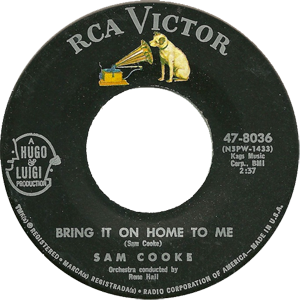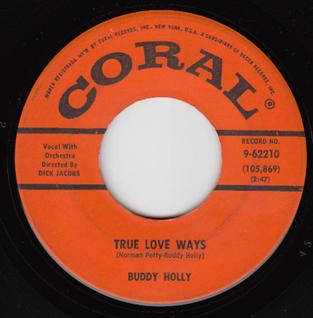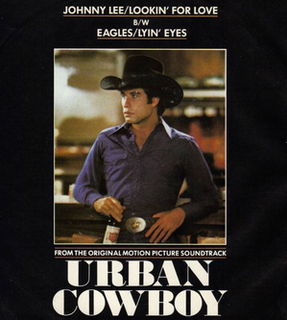Related Research Articles

"You Don't Know Me" is a song written by Eddy Arnold and Cindy Walker in 1955. "You Don't Know Me" was first recorded by Arnold that year and released as a single on April 21, 1956, on RCA Victor. The best-selling version of the song is by Ray Charles, who took it to number 2 on the Billboard Hot 100 chart in 1962, after releasing the song on his number 1 album Modern Sounds in Country and Western Music. The first version of the song to make the Billboard charts was by Jerry Vale in 1956, peaking at number 14 on the pop chart. Arnold's version charted two months later, released as an RCA Victor single, 47–6502, backed with "The Rockin' Mockin' Bird", which reached number 10 on the Billboard country chart. Cash Box magazine, which combined all best-selling versions at one position, included a version by Carmen McRae that never appeared in the Billboard Top 100 Sides listing.

"Bring It On Home to Me" is a song by American soul singer Sam Cooke, released on May 8, 1962, by RCA Victor. Produced by Hugo & Luigi, and arranged and conducted by René Hall, the song was the B-side to "Having a Party". The song peaked at number two on Billboard's Hot R&B Sides chart, and also charted at number 13 on the Billboard Hot 100. The song has become a pop standard, covered by numerous artists of different genres. It is one of The Rock and Roll Hall of Fame's 500 Songs that Shaped Rock and Roll.
Mickey Gilley was an American country music artist. His discography consists of 28 studio albums, 13 compilation albums, two live albums, 54 singles, and three music videos. 46 of his singles charted on the Billboard Hot Country Songs chart between 1968 and 1989, including 17 number one hits.
"I Only Have Eyes for You" is a romantic love song by composer Harry Warren and lyricist Al Dubin, written for the film Dames (1934) when Dick Powell introduced it. Several successful recordings of the song were made in 1934; later, there were charted versions by The Flamingos (1959) and Art Garfunkel (1975).

"True Love Ways" is a song attributed to Norman Petty and Buddy Holly. Buddy Holly's original was recorded with the Dick Jacobs Orchestra in October 1958, four months before the singer's death. It was first released on the posthumous album The Buddy Holly Story, Vol. 2, in March 1960. The song was first released as a single in Britain in May 1960, reaching number 25 on the UK Singles Chart. It was released the following month in the US, but did not make the charts. In 1988, a UK re-release of the recording by MCA, the single reached no. 65 on the UK singles chart in a 5 week chart run.

"Near You" is a popular song written and originally recorded by Francis Craig and His Orchestra at Castle Studio in 1947, with lyrics by Kermit Goell, that has gone on to become a pop standard.
"(Now and Then There's) A Fool Such as I" is a popular song written by Bill Trader and was published in 1952. Recorded as a single by Hank Snow it peaked at number four on the US country charts early in 1953.

"Lookin' for Love" is a song written by Wanda Mallette, Bob Morrison and Patti Ryan, and recorded by American country music singer Johnny Lee. It was released in June 1980 as part of the soundtrack to the film Urban Cowboy, released that year. Marcy Levy was one of the female singers who provided backing vocals on the track. "Lookin' for Love" was reissued as the lead song on his October 1980 album of the same name.
"Since I Met You Baby" is an American rhythm and blues song written and recorded by pianist Ivory Joe Hunter. The song, which Hunter recorded in 1956, became an American standard, and saw renewed popularity in 1969 when country music artist Sonny James released his hit version.
"Detroit City" is a song written by Danny Dill and Mel Tillis, made famous by Billy Grammer, country music singer Bobby Bare and Tom Jones. Bare's version was released in 1963. The song — sometimes known as "I Wanna Go Home" — was Bare's first Top 10 hit on the Billboard Hot Country Singles chart that summer, and became a country music standard.
"There! I've Said It Again" is a popular song written and published by Redd Evans and David Mann in 1941. In early 1945, Vaughn Monroe and his Orchestra released Victor 20-1637, which reached the number one position on the Billboard's National Radio Airplay chart for five straight weeks, then no.2 for six more weeks, and a total run of 29 weeks. It finished 1945 as the no. 4 record of the year.
"Drinking Champagne" is a song written by Bill Mack. He released the first version of the song on Pike Records in the mid-sixties. The song grabbed nationwide attention when the version by Cal Smith reached #35 on the country music charts in 1968.
"Bouquet of Roses" is a 1948 song written by Steve Nelson (music) and Bob Hilliard (lyrics). It was originally recorded by Eddy Arnold and his Tennessee Plow Boys and his Guitar in Chicago on May 18, 1947. It was released by RCA Victor as catalogue number 20-2806 and by EMI on the His Master's Voice label as catalogue numbers BD 1234 and IM 1399. "Bouquet of Roses" was Eddy Arnold's third number one in a row on the Juke Box Folk Record chart and spent 19 weeks on the Best Selling Folk Records chart. In 1949, when RCA Victor introduced its new 45 RPM single format this record was among seven initial releases and the first in the Country and Western category. Arnold would re-record "Bouquet of Roses" several times during his career.
"Fraulein" is a 1957 song written by Lawton Williams and sung by Bobby Helms. Released by Decca Records that year, "Fraulein" was Helms's debut single on the U.S. country chart, reaching #1 for four weeks and staying on chart for 52 weeks, the sixth longest song in country music history to spend over 50 weeks on the country singles chart. The song's popularity crossed over to the pop chart where "Fraulein" peaked at #36.
"The Window Up Above" is a song written and originally recorded by American country music artist George Jones. The version recorded by Jones peaked at number #2 on the country charts and spent a total of 34 weeks on the chart. It became a #1 smash for Mickey Gilley in 1975.
"I Overlooked an Orchid" is a country song that was a hit for Mickey Gilley in 1974. It was first recorded by Carl Smith in 1950, achieving only modest sales when it was released as a single through Columbia Records. Country act Johnnie & Jack recorded the song in 1962 as part of their album Smiles and Tears, then it was released as the B-side to their single "Bye Bye Love" in early 1963.
"She's Pulling Me Back Again" is a song written by Bill Rice and Jerry Foster, and recorded by American country music artist Mickey Gilley. It was released in February 1977 as the first single from the album First Class. The song was Gilley's seventh number one on the country chart. The single stayed at number one for a single week and spent a total of thirteen weeks on the country chart.
"That's All That Matters" is a song written by Hank Cochran, and recorded by American country music artist Ray Price in 1964. It has been recorded by multiple other country artists but the most famous recording was done by American country music artist Mickey Gilley. It was released in September 1980 as the first single and partial title track from his album That's All That Matters to Me. The song was Gilley's tenth number one on the country charts. The single went to number one for one week and spent a total of eleven weeks on the country chart.
"Swinging Doors" is a song written and recorded by American country music artist Merle Haggard and The Strangers. It was released in February 1966 as the first single and title track from the album Swinging Doors. The song peaked at number five on the U.S. Billboard Hot Country Singles.

The singles discography of American country singer-songwriter Bill Anderson contains 84 singles, three promotional singles, 6 other charted songs and four music videos. After signing to Decca Records in 1958, Anderson released a series of early singles that became hits, reaching the top ten and 20. This included "That's What It's Like to Be Lonesome" (1958), "The Tip of My Fingers" (1960) and "Po' Folks" (1961). The following year, he reached number one on the Billboard Country and Western Sides chart with "Mama Sang a Song." In 1963, Anderson released his most commercially successful single, "Still." The song was his second number one country single and his first top ten hit on the Billboard Hot 100, climbing to number eight. His follow-up single, "8×10" reached similar crossover success. Anderson released 11 more top ten country hits during the rest of the decade. This included the number one singles "I Get the Fever" (1966) and "My Life " (1969). He also had a number one hit with Jan Howard called "For Loving You" in 1968. Anderson also had top ten hits with "I Love You Drops" (1965), "Happy State of Mind" (1968) and a cover of "But You Know I Love You" (1969).
References
- ↑ "Bill Anderson -- "City Lights" (1958, Vinyl)". Discogs . Retrieved 27 July 2020.
- ↑ Whitburn, Joel (2013). Joel Whitburn's Top Pop Singles, 14th Edition: 1955-2012. Record Research. p. 676.
- ↑ Jerry Lee Lewis, Country Songs for City Folks Retrieved June 15, 2012.
- ↑ Whitburn, Joel (2013). Hot Country Songs 1944–2012. Record Research, Inc. p. 337. ISBN 978-0-89820-203-8.